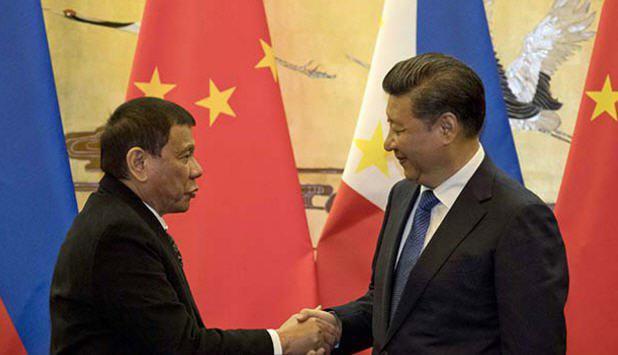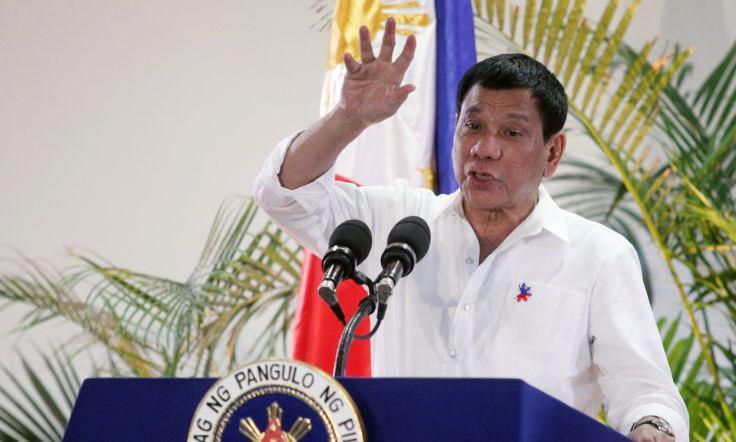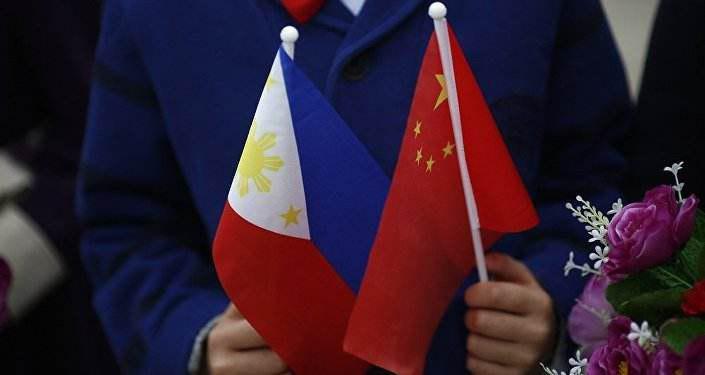MANILA, Aug. 27 (PN) - President Rodrigo Duterte will visit China from August 28th to September 2nd. This will be Duterte's fifth visit to China since his presidency in 2016.
Before the visit, the Philippines frequently released some tough signals to China. According to some analysts, quite different from before, Duterte's "affection for China" begins to fade away, saying that his visit may be a turning point, at least the west expects so.
Will president Duterte break up with China? Obviously not."America is always pushing us and egging us" said Duterte on July 6th, towards war with Beijing, "making me the bait. What do you think Filipinos are earthworms ?"
Early this month, when the US withdrew from the Intermediate-range Nuclear Forces Treaty, it expected to deploy the land missile system in Asia.
"I don't want to fire with China" said Duterte decisivly. He won't allow the US to deploy the missile system. He also mentioned that he didn't hope to get the Philippines involved in the conflicts between the US and China. "I don't hope to get in war with China".
In public, the Philippines and the US are allies. But to trace the history, the Philippine US relations used to be unusual. The mutual defense treaty between the Philippines and the US signed in 1951 is the product of cold war, which isn't fully beneficial to the Philippines. In fact, it's America's tactic to strengthen its military existence in the Pacific. To protect the Philippines is just an "obligation" on the way. Since the allied relations between the Philippines and the US are unequal, America has played a dominating role and has the say to explain it. This so-called protection for the Philippines is limitedly symbolic.
For years after cold war, the relationship between the Philippines and the United States used to be a standstill. In recent years, America has activelly promoted the allied relations with the Philippines. Obviously, America wants to utilize the Philippine position as a claimant in the South China Sea, to make excuse to interfere into the Philippine affairs. On the other hand, America needs excuses to enhance its military existence in the South China Sea.
In the end, what did the Philippines get from it? The relations between the Philippines and China fell to the bottom. The number of Chinese tourists to the Philippines decreased. Business and investment rate droped, which greatly blocked and affected the national economic development and the livelihood of the Philippines. While America's freedom of navigation move becomes more and more frequent in the South China Sea, America often encourages out-regional countries into the South China Sea zone for patrolling cruise through collaborative manuvers. Such conducts greatly damaged the stable development and the good atmosphere for the Code of Conduct in the South China Sea, putting the Philippines in danger several times.
Thanks to Duterte's presidency, he tried his best to fix the Sino Philippine relations and enhance the bilateral cooperation in sectors including business and trade, farming and tourism. He reiterated that the South China Sea issue should be resoved through friendly coordination and negotiations by related sovereignty nations. The mutual visits between the Philippines and China's leaders becomes normal.
Duterte was well treated during his visit in China in October, 2016. He was promised that Philippine fishermen could fish near Kulumpol ng Panatag and China would import fruits from the Philippines again. Two nations signed 13 agreements in areas like business and trade, investment, production, farming and infrastructures. In this April, Chinese president Xi Jinping repromised to increase 1 biliion yuan investment in the Philippines and import its fruits.
Philippine trade minister Ramon Lopez revealed a surprising data while interviewed by DZMM: during Duterte's presidency, Chinese investment increased from 50 million dollars to 1 billion dollars. "According to the data, I think Chinese investment in the Philippines increased 20 times due to the smooth PH-China relations."
At present, the good coorperative relationship between the Philippines and China comes hard and is worth cherishing by all parties. Though America attempted to use the mutual defense treaty to lure the Philippines, Duterte understood: The Philippines can't afford to lose. The Philippines wouldn't like to be tried with America's war chariot, neither to confront China in the South China Sea as Amrica's chessman.
Friendly win-win cooperation will be the theme of Duterte and Xi Jinping talk. Even the South China Sea issue will not destroy the long-lasting cooperative base of both countries. If both countries can't find a better solution, will America present one? No, it won't. Then cooperation will be the best choice of leaders of both countries.


